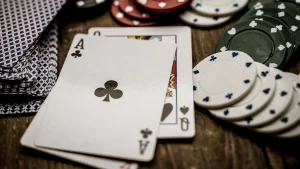What is the optimal poker strategy? According to game theory, there is an optimal poker strategy in every hand. In this scenario, you will win the pot with a hand that is as good as the opponent’s. In the long run, you will earn more money, or at the very least tie with them. While game theory optimal poker strategy is incredibly complex, it’s relatively easy to learn and implement. There are many benefits of this strategy, and there are many different ways to exploit other players in your favor.
The GTO is a variation of the classic poker strategy. This strategy is based on mathematical models of game theory. It focuses on playing in an unexploitative style. By doing this, you will win against every opponent in the long run. In short, this is the optimal poker strategy, or GTO, for your situation. Here are some things to consider when applying this strategy. Let’s begin by understanding how this strategy works.
This strategy uses mathematically based models to calculate the optimal poker strategy for any given situation. It starts with two hole cards and everything is based on these. If you’re lucky, you’ll have the highest hand strength and a higher percentage of hitting the pot. In the long run, you’ll be able to increase your odds of winning by using a GTO. If you’re playing Texas Hold’em, GTO can be a lifesaver. If you follow these principles, you’ll become a GTO wizard.
Moreover, you should always remember that the optimal poker strategy is based on exploiting your opponent’s fundamental errors. This can be either the check-checking error or the wide range. This strategy is essential for beating small stakes games, where you have to be aware of your opponents’ strategies and be ready to adapt your strategy accordingly. This strategy is the most effective when it comes to small stakes poker. However, there are many factors that can affect your poker strategy. Nevertheless, it’s important to understand the factors that influence the randomness of your opponent’s strategy.
In pre-flop poker, players who called the previous hand must be more savvy. They should fold similar hands. On the flop, you should bet on the same hands as you had in position. Similarly, if you check, you should divide your hands into three ranges – strong hands, check-raise hands, and bluffs that improve on the river. Learning poker ranges is a process and requires a lot of practice. But with time and patience, you’ll become a master of the game.
When assessing a player’s potential to win, it’s imperative to consider how aggressive a particular player is. Aggressive play should be timed, as opposed to being too overbearing. If you’re too cautious, you may find yourself marked as weak, and a weak opponent will take advantage. Moreover, you should always be more aggressive in strong opening hands. This will give you an upper hand in the long run.








More Stories
Navigating the Blockchain Revolution in Online Gambling
Exploring the Future of Virtual Reality Casinos
The Rise of Casino-Themed Podcasts and Online Radio Shows